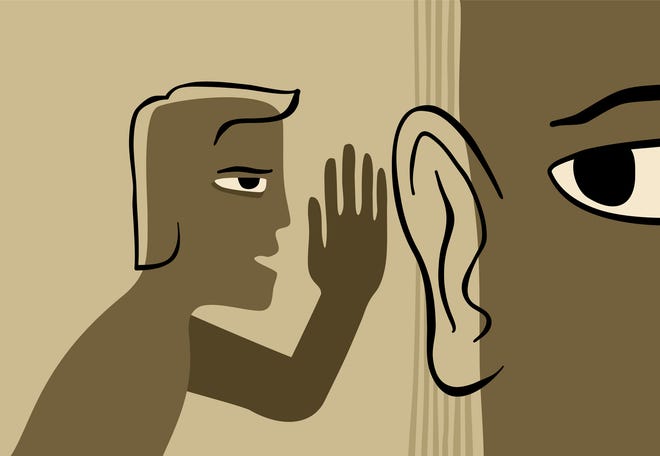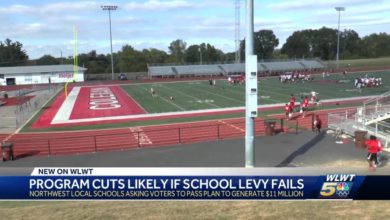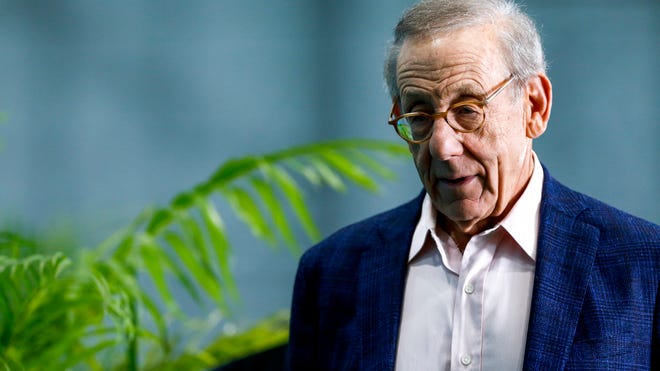

Virginia Gov. Glenn Youngkin, who banned critical race theory from public education, launched a headline-making email tip line earlier this week that allows students and parents to report "divisive practices" within their schools.
It's not the first time tip lines have blown up. Last year, after Texas tightened their abortion laws, a website was created for people to anonymously report anyone who was helping people access abortions after the now-illegal six week pregnancy period. Earlier in the pandemic, some states created online forms to report people and businesses not following mask requirements.
But do tip lines help solve or sow conflict and division? Experts say it all depends on how they're developed and used. Historically, tip lines have been critical for public safety and holding those in power accountable, but there are instances where they can do more harm than good.
"We have these for whistleblowers and organizations, and that can be a really important thing for reporting unethical or dangerous behavior," says Jay Van Bavel, associate professor of psychology and neural science at New York University and co-author of "The Power of Us." "In these cases, they do sound like they're being weaponized in a way that probably turns citizens against one another for political ends... It's very hard to see how that can be helpful for society."
Dr. Isabel Araiza, associate professor of sociology at Texas A&M Corpus Christi, said tip lines began as a way to ensure confidentially for those most vulnerable – now, they're "being put in place by the powerful to uphold the status quo."
"Those tip lines were connected to a recognition of the vulnerability of the people who might report useful information that could be helpful for the broader community," she says. "The way that the tip lines are being used now... what we see is actually not that. We have to think who does this benefit? And who's harmed by it?"
How and who can tip lines hurt?
Van Bavel says these recent examples can feel like they're "turning citizens against one another" at a community level.
"That's probably going to foster more conflict and make classrooms harder for teachers who were already burned out and overly stressed, trying to deal with everything in the pandemic," he said.
The process of responding to tips is also subjective, which calls their utility into question.
Van Bavel explains some complaints may be ignored if the teacher is well-liked by staff while other complaints, like those coming from well-connected or wealthy donor parents "can have force."
The way they're being implemented is actually "shielding the powerful," Araiza says.
A firing is also not the only consequence. When teachers are fired, especially for trivial cases, it can have a chilling effect on an educational environment, Van Bavel says.
"It changes how people think and respond and engage in the classroom. A real consequence of it is... one or two people get punished in a prominent way and then everybody shuts up about teaching racism in school. It creates self-censorship, which is often the real target."
Araiza says these systems can allow for "vulnerable populations to be harmed," whether it's women who can't seek reproductive health care they need or teachers who aren't able to explore students' questions.
And just as bullies and trolls can hide behind social media handles, email tip lines can add a layer of anonymity that can make communication "much more harsh," Van Bavel explains, which "can allow problems to escalate."
"Anonymity can exaggerate and exacerbate conflicts... it's kind of impersonal (and) you don't get to read the person's emotions and expressions."
'It's like walking a tightrope':Critical race theory bans are adding more anxiety to stressed teachers
Does the pandemic play a role?
While the pandemic has left many feeling powerless, Van Bavel says it's difficult to assess if tip lines are a way to help people feel in control.
"The U.S. is at a higher rate of polarization than has been in 40 years," he says. "Understanding these things through that lens means that some of them are going to be designed to just make life miserable and intolerable for people that you don't like."
Other topics over the past few years surrounding schools have become polarized as well, including when to return to school, mask mandates, vaccinations.
"A lot of these things are woven into the last few years and the political moment that we have," he says, and in certain cases, misunderstood buzzwords get jumbled into the mix. "No one's teaching critical race theory in elementary schools anyways, that's a very academic theory... It's become a bit of a stand-in for teaching about history (and) systemic racism.
Van Bavel also wonders how cases will be determined. For example, what if a parent reports a teacher for teaching critical race theory, but it wasn't CRT and instead the history of slavery?
The pandemic also allowed us to marinate on topics brought to the forefront of the national conversation like inequality.
"When we were in our homes, we had time to think about those things," Araiza says, which led people to feel strong solidarity in their beliefs, creating an "us versus them" line in the sand.
"When you have this anonymous tip line, there is no boundary. There is no safe space," she says.
Van Bavel views it like this: When conditions are right, it doesn't take much to create a forest fire.
"These things might seem like a little match, but you're dropping it on a dry environment where it just ignites," he says, which is why the context in which these tip lines are popping up is so important. "Everything from mask-wearing to opening schools to issues of racial inequality have been highly conflictual, hyper-polarized... So you're just adding that fuel to the fire."
Source link








